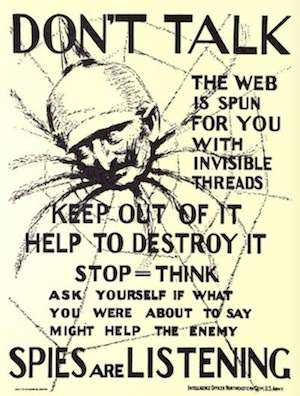David Brooks' Analysis of Edward Snowden Tells Us a Lot…About David Brooks
The New York Times columnist can't distinguish a challenge to authority from a challenge to civil society.

In The New York Times this morning, David Brooks does the old Take A Few Facts About Somebody, Extrapolate An Entire Psychological Profile, Then Plug It Into One Of My Standard Columns trick. The small handful of facts involve NSA leaker Edward Snowden; the psychological profile claims that Snowden was a loner cut off from social bonds; the standard column claims that this is a sign of "the atomization of society," that this alleged dissolution of civil society fuels the "distinct strands of libertarianism" which may have inspired Snowden, and, of course, that
Big Brother is not the only danger facing the country. Another is the rising tide of distrust, the corrosive spread of cynicism, the fraying of the social fabric and the rise of people who are so individualistic in their outlook that they have no real understanding of how to knit others together and look after the common good.
Just to be clear: He's talking about Snowden here. Brooks doesn't discuss whether the surveillance state is built on distrust, whether deceiving Americans about its activities spreads cynicism, whether its intrusions into civil society fray the social fabric, and whether the officials who run it are really working toward the common good. As usual, virtually all of Brooks' criticisms are directed at people who challenge authority, not people in authority.
But this time the columnist takes that habit to absurd new heights. Snowden, he writes,
betrayed the Constitution. The founders did not create the United States so that some solitary 29-year-old could make unilateral decisions about what should be exposed. Snowden self-indulgently short-circuited the democratic structures of accountability, putting his own preferences above everything else.
That's the special genius of David Brooks. While other pundits argue about whether the PRISM program violates the Fourth Amendment, Brooks sees the real part of the Constitution that's being battered here: the little-known anti-whistleblowing clause. And then he tut-tuts at the supposed self-indulgence of a man who just put everything he has at risk for the sake of his country.


Show Comments (142)